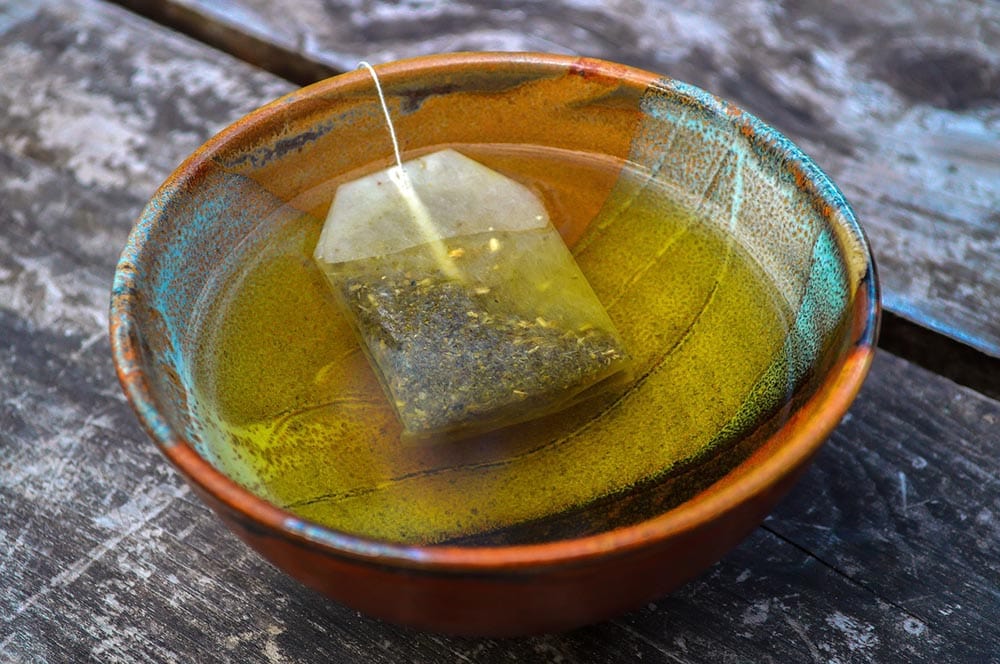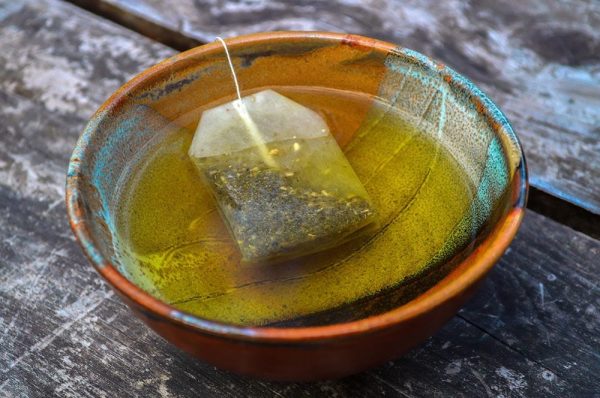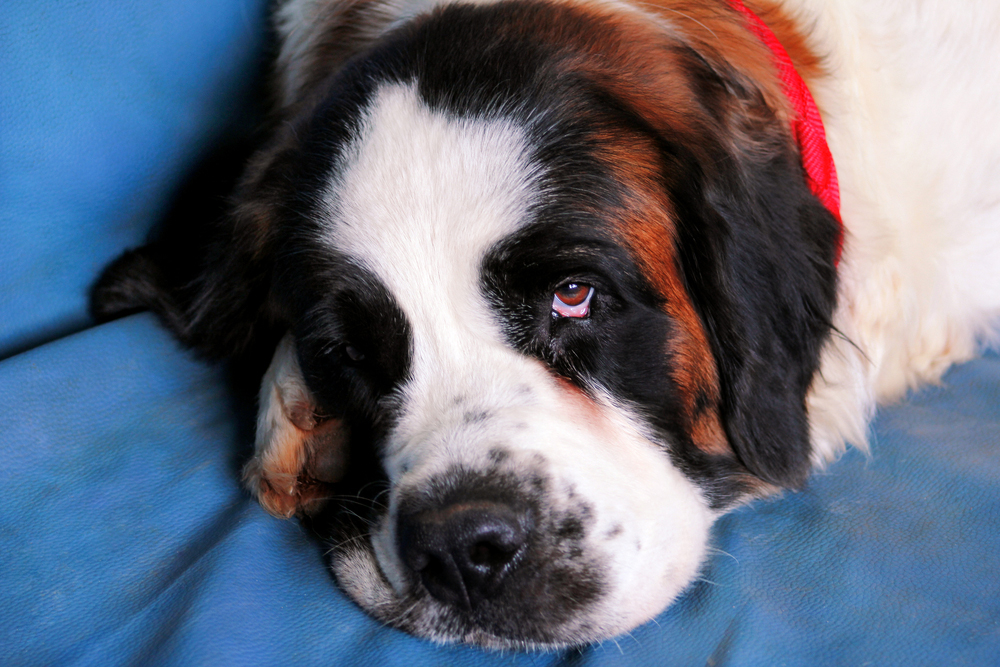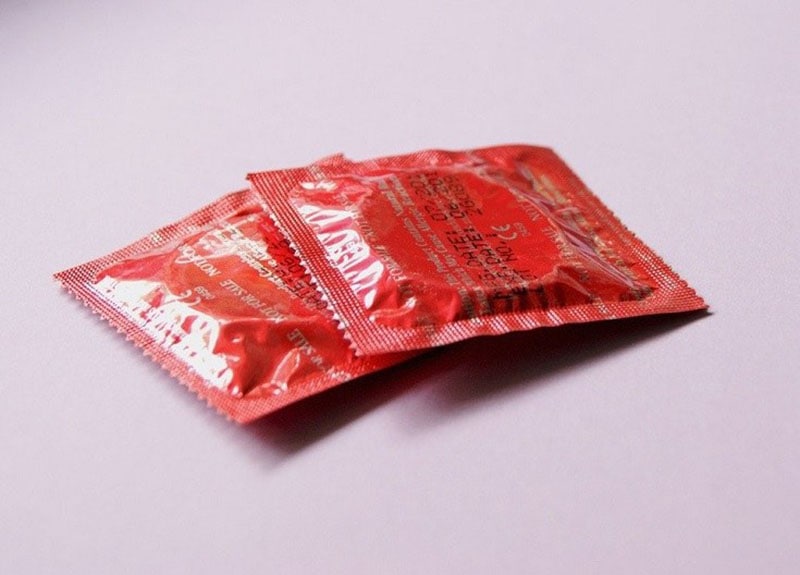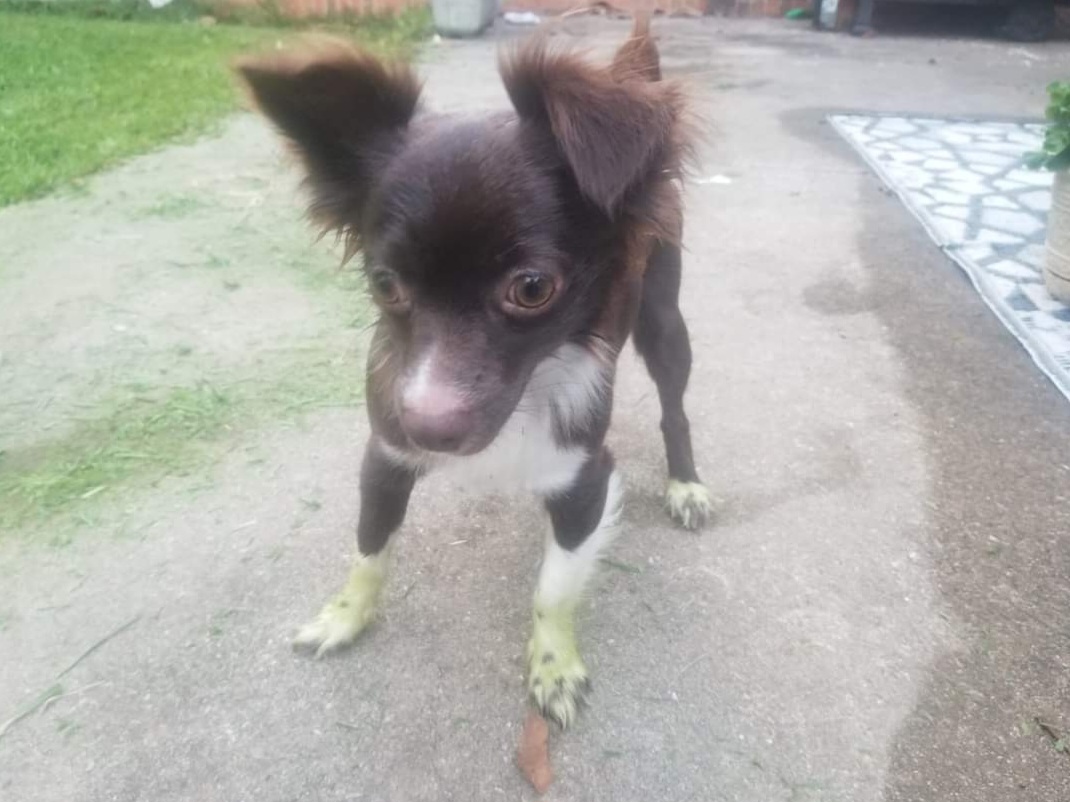Click to Skip Ahead
Some dogs will eat anything that’s in front of them! Other dogs will seek out food they aren’t supposed to get – they will get onto the counter, pull out the trash, and/or eat random things off the sidewalk. But what about if your dog got into either a box of tea bags, or used tea bags already saturated with water – should you be worried?
Tea, especially if caffeinated, can be highly toxic to dogs. Even decaf tea may be harmful, depending on the size of your dog and how much was ingested. In addition, tea bags may also pose a risk of obstruction in your dog.
In this article, we’ll discuss why tea can be toxic to your dogs, what abnormal signs to monitor for, and what to do if you know your dog ingested tea bags.
Why Is Tea Toxic to Dogs?
Tea is toxic to dogs due to the high levels of caffeine and caffeine-like chemicals. Theobromine, caffeine, and theophylline are the chemicals in tea that can be toxic to dogs. If you brew a cup of tea and your dog takes a few licks, they will likely be fine. However, it depends on how big your dog is. But in general, diluted tea or coffee that’s in liquid form will likely cause little to no signs if only a small amount is ingested.
However, if your dog ingests one or multiple full tea bags, or chews a bag open and eats the contents, they’re at high risk for severe abnormal signs and even death. The tea bags contain a high concentration of tea and herbs, and therefore a high concentration of theobromine, caffeine, and/or theophylline. Depending on how big your dog is and what kind of tea they ingested, even one tea bag may be deadly.
In addition to the caffeine, the different herbs and flavoring in tea may also be toxic. There are a number of other plants, flowers, and/or herbs that may be toxic to your dog, even if they are not toxic to you. A good list to check out can be found on the ASPCA Poison Control website.
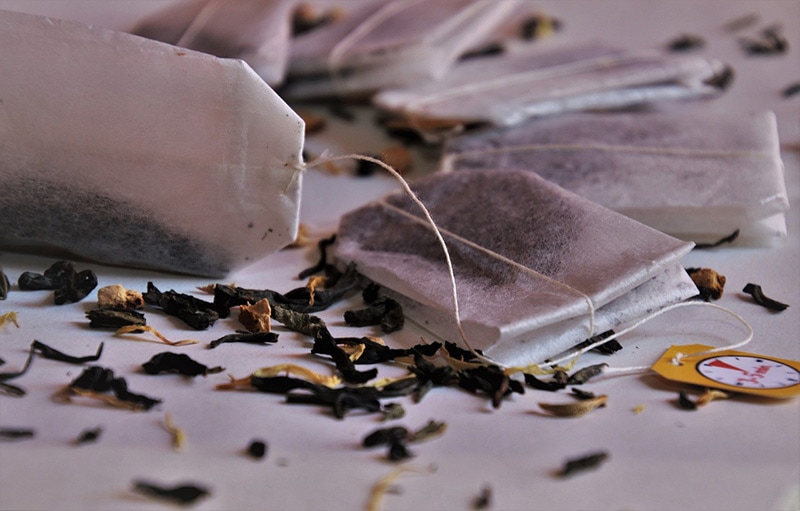
What Do Signs of Toxicity Look Like?
Theobromine, or caffeine toxicity, can range from mild to severe. Mild signs can include vomiting, diarrhea, and anorexia. Sometimes a dog will vomit and help to decontaminate themselves, getting rid of a large amount of the caffeinated material they ingested.
Moderate toxicity will appear as hyperactivity, tremors, panting, restlessness, fast heart rate, vomiting, and diarrhea. Dogs that exhibit these signs already have caffeine within their system and decontamination may not be successful. These dogs will often require hospitalization and supportive care to help with dehydration, the elevated heart rate, and general stabilization.
Severe toxicity can include all of the above, but then progress to collapse, seizures, hyperthermia (elevated body temperature), arrhythmia(s), hypertension (elevated blood pressure) and death. These dogs will always require aggressive care at a veterinary hospital. Many of these dogs will need to be hospitalized at a veterinary ER or Specialty Hospital. This is because the medications needed to help control the heart rate, heart rhythm, and blood pressure are often not used by regular veterinarians. Your dog will also need around the clock care and monitoring. Unfortunately, dogs can die from severe caffeine toxicity.
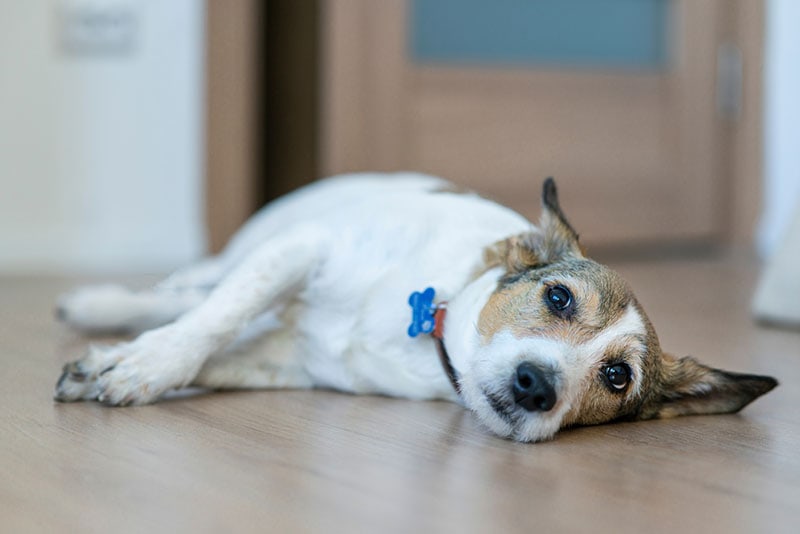
What About Decaf Tea?
Decaffeinated tea still has caffeine in it. Whether or not it’s a toxic level if ingested would be determined based on how much your dog ate and their body weight. A small dog that ate a few bags of tea will be much more affected than a larger breed dog that ingests the same amount. If your dog ingests any type of tea, you should call an animal poison control center so that they can calculate if your dog is at risk for caffeine toxicity or not. It’s best if you have the exact brand and type of tea your dog ingested so that poison control can calculate the exact potentially toxic dose.
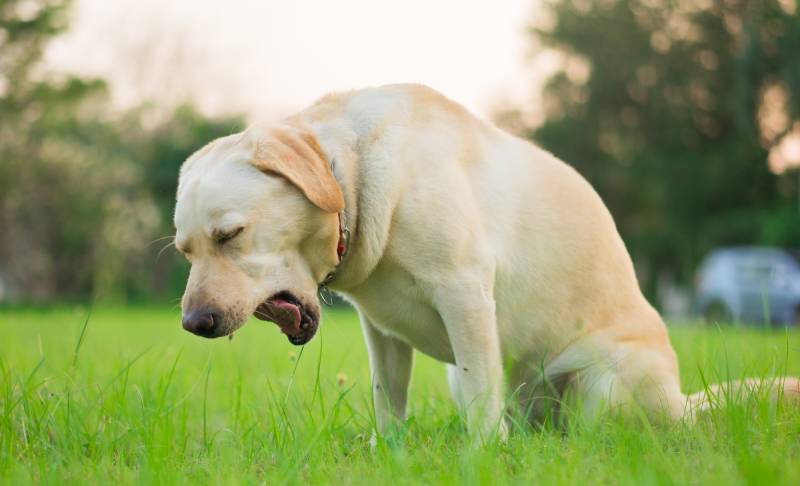
Is My Dog at Risk of Something Other Than Caffeine Toxicity?
Depending on the type of tea your dog ingested, there may be other ingredients that are toxic to them. There are many different plants, herbs, and foods that can be toxic to dogs in different amounts. Some toxicities may just cause an upset stomach, while others could be much more serious. As with the caffeine ingestion, an animal poison control center should be contacted. They will ask your dogs’ weight, the type and brand of tea ingested, and how much they ate. The toxicologists will then calculate if there were potentially any other ingredients that could be toxic to your dog.
No matter the toxicity level, ingestion of tea bag(s) may also pose a risk of obstruction for your dog. One or multiple tea bags may become lodged within your dogs’ gastrointestinal tract anywhere from the stomach through the small intestines. If this occurs, and the bags do not move through to the colon, your dog may need surgery to remove the bag(s).
If you know your dog ingested tea bags, you can contact your veterinarian as they may be able to induce vomiting while the bags are still in their stomach. This can be done either with an injectable medication, or a medication that is placed into the eye. This will cause your dog to vomit up their stomach contents. If the bags are vomited up, this would prevent the bags from getting into the intestines and causing an obstruction. Most veterinarians will recommend that vomiting is induced within a few hours of ingestion.
Conclusion
Tea bag ingestion, even if decaffeinated, can be severely toxic to your dogs. Different types of teas will have different levels of caffeine, theobromine, and theophylline in them, all of which may be toxic. How much your dog ingested and how much your dog weighs will determine their risk of mild to severe toxicity. Unfortunately, severe toxicity, if not treated promptly and appropriately, can result in death. Aside from the caffeine and caffeine-like chemicals, other plants and ingredients can pose a toxicity risk to your dog. Any type of tea bag may also put your dog at risk for intestinal obstruction. If your dog ingested tea bag(s), an animal poison control center and your veterinarian should be contacted to determine your next best course of action.
Featured Image Credit: nils-art, Pixabay

